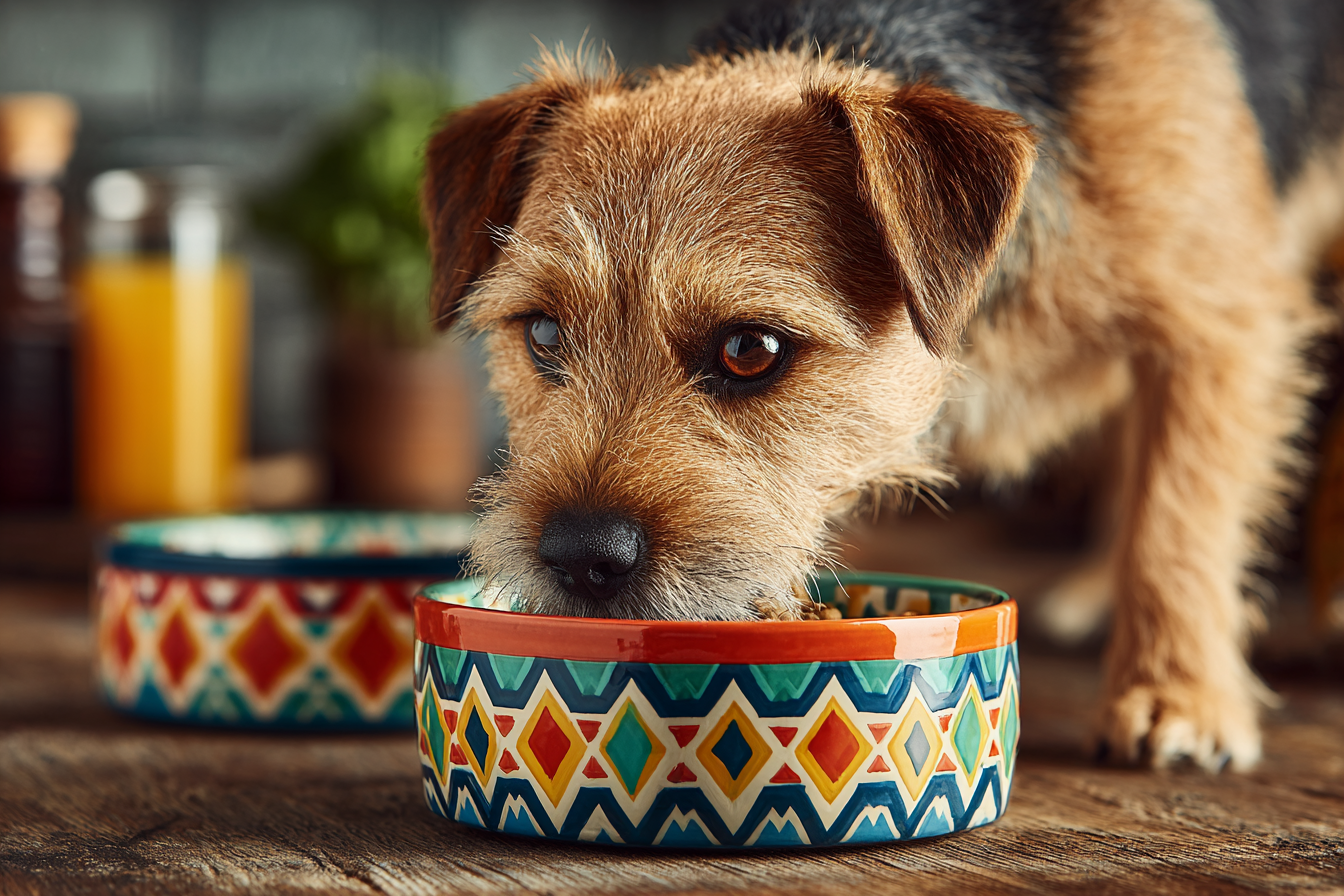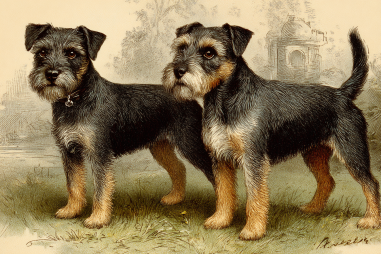Caring for a Border Terrier’s diet and nutrition is essential to ensure they stay energetic, maintain a shiny coat, and enjoy overall good health. This small but lively breed has specific dietary needs that reflect its active lifestyle and unique physiology. Whether you choose commercial dog food, homemade meals, or supplements, understanding what fuels your Border Terrier best will help you give them a happy, healthy life. Let’s explore how to optimize your furry friend’s diet with practical tips and nutritional insights tailored just for them.
Nutritional Needs Specific to Border Terriers
Border Terriers are energetic dogs originally bred for hunting, which means they require a well-balanced diet rich in protein and nutrients to sustain their activity levels. Protein is vital in building and maintaining muscle mass, supporting their physical stamina. Aim for a diet where protein constitutes at least 18-22% of the total intake, preferably from animal sources like chicken, lamb, or fish.
Along with protein, a moderate amount of healthy fats is necessary to supply energy and keep their coat glossy and skin healthy. Fats also help in the absorption of fat-soluble vitamins such as A, D, E, and K. Carbohydrates, while important for energy, should be given in measured amounts to avoid excess calories that could lead to weight gain.
Vitamins and minerals play supportive roles for a Border Terrier’s immune system, bone health, and metabolism. Minerals like calcium and phosphorus are critical for strong bones and teeth, while antioxidants found in fruits and vegetables bolster their defenses against diseases. Keep in mind, Border Terriers can have sensitive stomachs, so introducing new foods gradually and watching for any signs of intolerance is advisable.
Choosing High-Quality Commercial Dog Food
For many pet owners, commercial dog food offers convenience and balanced nutrition without the guesswork. However, not all brands or formulas are created equal. When selecting dog food for your Border Terrier, look for products that list meat as the first ingredient and avoid those with excessive fillers like corn, wheat, or soy. These ingredients can be harder to digest and may cause allergies or sensitivities in some dogs.
Opt for grain-free or limited-ingredient diets if your dog shows signs of food allergies or digestive issues. Always check for AAFCO (Association of American Feed Control Officials) certification, ensuring the food meets established nutritional standards. There are specific formulas for small breeds or active dogs, which can be beneficial, given the Border Terrier’s size and energy requirements.
It’s important to match the food to your dog’s life stage—puppy, adult, or senior—to meet their changing nutritional needs. Puppies require more calories and nutrients to support growth, while older dogs benefit from diets lower in calories but enhanced with joint-supporting supplements.
Homemade Diet Considerations
Preparing homemade meals for your Border Terrier can be rewarding and allows you to control exactly what they eat. However, it requires careful planning to provide a complete and balanced diet. Consult your veterinarian or a canine nutritionist to design recipes that include appropriate proportions of protein, fats, carbohydrates, vitamins, and minerals.
Some safe proteins for Border Terriers include lean beef, chicken, turkey, and fish, cooked thoroughly to eliminate harmful bacteria. Complex carbohydrates like brown rice, sweet potatoes, and oats serve as good energy sources. Adding vegetables such as carrots, peas, and green beans provides fiber and essential nutrients.
Avoid seasoning foods or using ingredients that are toxic to dogs such as onions, garlic, grapes, raisins, chocolate, and excessive salt. Incorporate a source of calcium—often through ground eggshells or supplements—to maintain bone health. Keep in mind the time and effort homemade diets demand, along with regular vet check-ups to ensure your dog’s diet meets their nutritional needs long-term.
Feeding Schedules and Portion Control
Maintaining a consistent feeding schedule helps regulate your Border Terrier’s digestion and prevents overeating. Typically, feeding twice a day—once in the morning and once in the evening—is ideal for adult dogs. Puppies may require three to four smaller meals daily as they grow.
Portion sizes depend on your dog’s age, weight, activity level, and the type of food provided. Using the feeding guidelines on dog food packaging is a good starting point, but adjust portions based on your observation of your dog’s body condition. A healthy Border Terrier should have a visible waist and feel firm but not bony when you run your hands along its sides.
Overfeeding can quickly lead to weight gain, which puts undue stress on their joints and can shorten lifespan. On the other hand, underfeeding risks malnourishment and lack of energy. Regularly weigh your dog and consult your vet if unsure about appropriate serving sizes.
Foods to Avoid
While it’s tempting to share table scraps, several common human foods are harmful to Border Terriers and should never be fed to them. These include:
- Chocolate: Contains theobromine, which is toxic even in small amounts.
- Onions and garlic: Can cause anemia and digestive upset.
- Grapes and raisins: May cause kidney failure.
- Xylitol: A sweetener found in sugar-free gum and candies that leads to rapid insulin release and possibly liver failure.
- Alcohol and caffeine: Toxic substances with severe effects on health.
- Fatty or salty foods: Can induce pancreatitis or salt poisoning.
Additionally, avoid raw or undercooked bones which may splinter and cause internal injuries, and be mindful of foods high in sugar or artificial additives. Sticking to dog-safe treats and foods keeps your Border Terrier safe and healthy.
Supplements and Hydration Tips
Supplements can complement your Border Terrier’s diet, particularly if they have specific health needs or dietary restrictions. Popular supplements include omega-3 fatty acids from fish oil, which support skin and coat health and reduce inflammation; glucosamine and chondroitin for joint support; and probiotics to promote healthy digestion.
Always talk to your veterinarian before introducing supplements to avoid interactions or overdosing. Some high-quality commercial foods already contain added vitamins and minerals, so supplements may not be necessary in all cases.
Hydration is equally important for your Border Terrier’s wellbeing. Always provide fresh, clean water, and encourage your dog to drink throughout the day, especially after exercise. Hydration aids digestion, regulates body temperature, and prevents urinary problems. Avoid giving sugary drinks or milk as they may cause digestive upset.
Monitoring Weight and Health Through Diet
An optimal diet goes hand in hand with monitoring your Border Terrier’s weight and overall health. Regularly assess their body condition by checking for a defined waist and feeling their ribs gently. If your dog develops weight problems—underweight or overweight—adjust food intake and exercise accordingly.
Keep an eye on their energy levels, coat condition, and stool quality, as these are good indicators of dietary balance. Changes in appetite or sudden weight fluctuations warrant a veterinary check to rule out underlying health issues.
Scheduling routine vet visits will help ensure your dog receives necessary vaccinations and wellness exams, making it easier to spot nutritional concerns early. Tracking your Border Terrier’s growth from puppyhood through adulthood helps tailor a diet that supports a healthy life every step of the way.
Helping Your Border Terrier Thrive Through Nutrition
Feeding your Border Terrier properly involves a thoughtful mix of high-quality nutrition, portion control, and awareness of their unique needs. By providing balanced meals—whether commercial or homemade—and avoiding harmful foods, you support their energetic lifestyle and glowing coat. Supplements and hydration add further health benefits while monitoring their condition helps maintain a happy, active dog for years to come.
Remember, every Border Terrier is unique, so stay attentive to their preferences and health signals, adjusting their diet as needed. With a little care and knowledge, you can be confident you’re giving your loyal companion the best possible fuel for a vibrant and joyful life.







